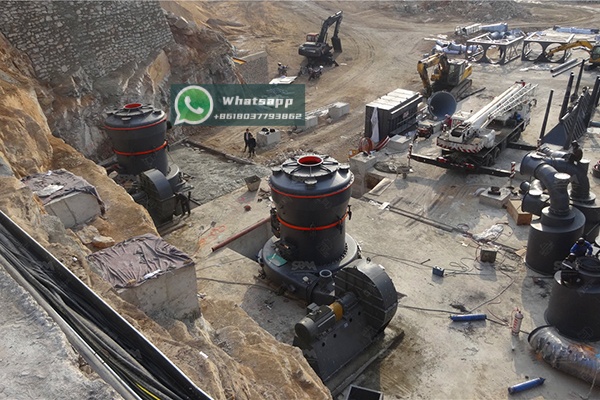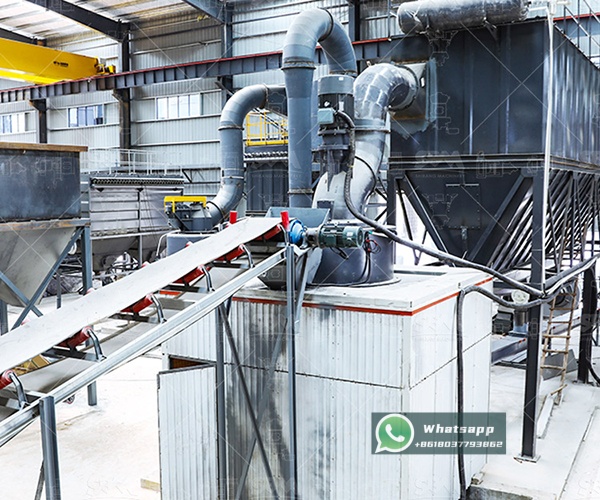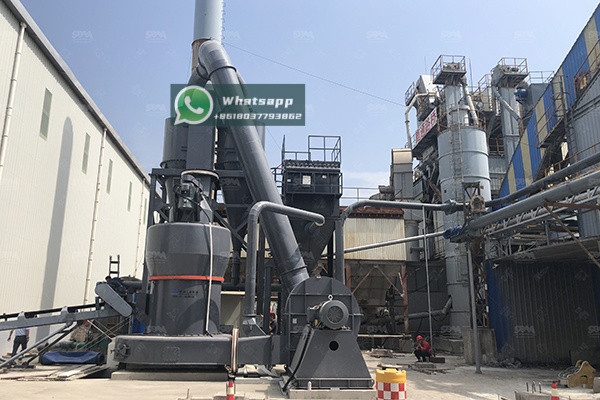In the agricultural sector, maintaining optimal soil pH is crucial for crop productivity and soil health. Acidic soils, which affect nearly 30% of the world’s arable land, can significantly reduce agricultural yields by limiting nutrient availability and increasing the toxicity of certain elements. Dolomite, a naturally occurring mineral composed of calcium magnesium carbonate [CaMg(CO3)2], has long been recognized as an effective and economical soil amendment for neutralizing soil acidity. The efficacy of dolomite in this application, however, is profoundly dependent on its fineness and uniformity. This is where advanced grinding technology, specifically the Raymond Mill from Shanghai Zenith Machinery Co., Ltd., becomes an indispensable tool for the soil pH balancing industry.
The fundamental principle governing the effectiveness of any powdered soil amendment is its surface area. When dolomite is applied to the soil, the neutralization process occurs at the surface of each particle. Finer particles possess a dramatically larger cumulative surface area per unit of mass compared to coarse particles. This increased surface area allows for a faster and more complete reaction with the acidic components of the soil (H+ ions).
Coarsely ground dolomite may take months or even years to fully react, providing a slow, inconsistent correction of soil pH. In contrast, finely pulverized dolomite begins working immediately upon application and integration with soil moisture, leading to a more rapid and predictable adjustment of pH levels. This ensures that crops can access essential nutrients like phosphorus, calcium, and magnesium within a single growing season. The Raymond Mill is engineered specifically to produce this high-value, fine powder with exceptional consistency.

Shanghai Zenith Machinery Co., Ltd., an excellent manufacturer of ore grinding equipment in China, has made great achievements in the field of ultra-fine powder grinding. Among its comprehensive portfolio, the Raymond Mill stands out as a particularly suitable solution for processing dolomite for agricultural use. Its design philosophy centers on energy efficiency, reliability, and producing a controlled, fine product.
The operational principle of a Raymond Mill involves the grinding of material between stationary and rotating components. The dolomite feed is introduced into the grinding chamber and is pulverized by the rollers (or grinding rolls) as they swing outward and press against the grinding ring. The ground material is then carried by the air stream into a classifier. The classifier allows only particles that meet the desired fineness to pass through, while oversized particles are rejected back to the grinding chamber for further processing. This closed-circuit system ensures a uniform product with a narrow particle size distribution, which is paramount for consistent soil amendment performance.
For the soil pH balancing industry, we highly recommend our YGM4121 Raymond Mill. This model offers an ideal balance of capacity, fineness control, and operational economy for medium to large-scale dolomite processing operations.
| Model | Roller Quantity (pcs) | Max.Feed Size (mm) | Discharging Size (mm) | Capacity (t/h) |
|---|---|---|---|---|
| YGM4121 | 5 | 30 | 1.6-0.045 | 5-11 |
As the table demonstrates, the YGM4121 can process dolomite feed sizes up to 30mm and produce a final product ranging from 1.6mm down to 0.045mm (45 microns). For optimal soil amendment reactivity, a fineness of 0.075mm to 0.15mm (100-200 mesh) is typically targeted, which falls perfectly within the capability of this mill. Its capacity of 5 to 11 tons per hour makes it suitable for supplying significant quantities of processed dolomite to agricultural cooperatives and soil amendment producers.
While the Raymond Mill is perfectly suited for standard agricultural-grade dolomite powder, some specialized applications may demand an even finer product. For these high-end requirements, Shanghai Zenith offers more advanced grinding solutions. The XZM Ultrafine Grinding Mill is an excellent choice when a superfine dolomite powder is desired.
The XZM series can achieve an astonishing output fineness ranging from 325 to 2500 mesh. This level of fineness creates a product with extremely high reactivity, potentially useful in precision agriculture, liquid soil amendment formulations, or other value-added products. The XZM Ultrafine Grinding Mill integrates multiple advanced technologies to achieve this performance while maintaining energy efficiency.

Investing in a dedicated grinding mill from a reputable manufacturer like Shanghai Zenith provides numerous tangible benefits for businesses in the soil amendment sector:
The challenge of soil acidity is a significant barrier to global food security. Effectively addressing this issue requires not only the right mineral amendments but also the right technology to process them. The Raymond Mill, particularly models like the YGM4121 from Shanghai Zenith Machinery Co., Ltd., provides a proven, efficient, and economical solution for transforming raw dolomite into a high-performance soil pH balancer.
By leveraging advanced grinding technology, producers can ensure that farmers have access to a superior product that works quickly and effectively, leading to healthier soils and more abundant harvests. As a leader in industrial powder grinding equipment, Shanghai Zenith is committed to providing the machinery that supports this vital industry, contributing to a more productive and sustainable agricultural landscape.
